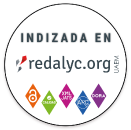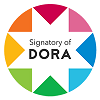Ethical code and editorial guidelines
I. ETHICAL CODE AND EDITORIAL GUIDELINES
REE journal follows the guidelines established by the International Committee of Medical Journal Editors (ICMJE) in terms of uniformity requirements for submitted manuscripts to biomedical journals. These requirements are available on; http://www.icmje.org. That is why, authors are recommended to read the document available on: http://www.icmje.org/icmje-recommendations.pdf.
Authors must:
Declare any conflict of interests that might affect the research to be published. If this happens, a quotation explaining this situation will be published in the respective manuscript section.
Authors who notice any editing error in their published file are able to ask the editor to correct any part of their manuscripts.
Authors should also have taken part in the whole process of the articles publication. The participation as an author includes a) the conception, the draft or analysis, and the data interpretation, b) the article composition or its critical review, and c) the approval of the version to be published.
The accomplishment of the ethical norms related to the research publications in human beings is the author’s responsibility and should be according to the World Medical Association Declaration of Helsinki (1964, rewritten in 1975,1983, 1989, 1989, 1996 and 2000). So, the authors must declare the appropriate information in the material and methods section and attach the pertinent guarantees, registers, and files which authorized the performing of researching process.
Non-compliance any of those norms implies the immediate rejection of the manuscript in the issue of the journal.
Peer reviewers must:
Keep an anonymous profile in the editing process and declare any conflict of interests in relation to the manuscript content assigned, which could include any political, ideological, philosophical, or any other kind of thinking or any possible close relationship to the place where the research was conducted.
Keep a respectful and professional attitude in relation to the proposal they are reviewing. The review must be objective and scientifically based. The suggestions and corrections must be made in a constructive way in order to improve the manuscript.
Take into consideration the established editorial formats and fulfill data appropriately and reasonable. In addition, the peer reviewers are able to report any possible ethical transgression carried out by authors.
Review the manuscripts considering deadlines established by REE, keeping a confidential status of their assessments and of the content of the assigned manuscripts.
The transgression of the norm implies the situational analysis by REE editors in order to take the appropriate actions which could include the assessment withdrawal and the separation of the pair reviewers’ team.
The editors must:
Keep the authors informed in relation to the ongoing editorial process of their manuscripts, making objectives decisions based on technical criteria and prioritizing the interests of science, readers, and the REE.
Take part in the analysis of the ethical transgressions carried out by authors, peer reviewers or other editors in order to take the appropriate actions. In addition, they are in charge of doing the corrections and apologizing for the editorial errors made when they take place.
Respect the confidential nature of all the information managed in relation to the authors, the editorial process of each article, and any aspect which requires the authorization of any of the actors involved.
Accomplish the norms of the conflict of interests established keeping an ethical profile. In this way, the Committee on Publication Ethics (COPE) points out the most common reasons why an editor can be expelled from the article processing such as:
- Cooperate with any author, currently or recently.
- Have something published with any author in the last 5 years.
- Have obtained any grant with any author, currently or recently.
- Have a personal relationship with any author, which can affect the objectivity in the editorial process of the manuscript.
Editors who transgress the established norms will be sanctioned according to the gravity of the situation. They can even be expelled of the journal.
II. ORIGINALITY REQUIREMENTS
In order to be published by the REE, the manuscripts must be original (It’s verified by the Urkund antiplagiarism system). Additionally, they have not been submitted to other biomedicals journal (This practice is known as duplicate submission). Results, abstracts, posters, scientific congresses, thesis dissertations or similar formats can be accepted for their submission after being reviewed by the REE.
The authors are responsible of the information contained in their manuscripts including concepts, opinions, analyses, and so on. Those manuscripts containing previously published material or illustrations in which people can be identified are requested to attach a pdf file that authorizes their use by the appropriate organization.


















